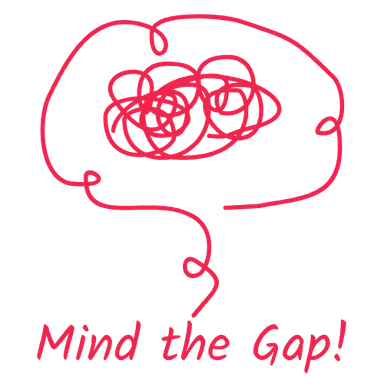Why Do You Scroll Endlessly on Social Media?
2025-04-27
You open your phone for one quick check—and an hour disappears. It’s not weakness, it’s wiring: instincts tuned for novelty, social monitoring, and survival now collide with infinite feeds designed to exploit them.
Here’s the 10 min audio conversation exploring this idea.
Ideas worth listening to !
You pick up your phone to check one notification. Just a quick look.
An hour later, you’re knee-deep in memes, videos, and updates you never meant to see. You don’t even remember how you got there—or why it feels so strangely hard to stop.
This isn’t weakness. It’s wiring.
Our brains evolved in a world of scarcity and immediacy. The same instincts that once kept us alive in small groups on open landscapes now collide with a digital world designed to hijack them. What feels like “just scrolling” is really your ancient operating system being gamed in real time.
The Allure of the New
In the ancestral world, noticing something new—a water source, a rustle in the brush, a ripe fruit tree—could mean the difference between survival and starvation. Evolution rewarded curiosity with dopamine. As Robert Sapolsky notes in Behave, novelty isn’t just interesting to the brain—it’s chemically exciting.
Social media exploits that itch. Every swipe promises something new: a fresh photo, a breaking headline, a clip you’ve never seen before. Unlike fruit trees, the stream never runs dry. Your brain keeps tugging at the lever, hungry for the next hit of “what’s new.”
The Hyper-Social Brain
Humans are built to monitor each other. In small tribes of a few dozen people, knowing who was angry, who was allied, who was vulnerable, or who was pairing up wasn’t idle gossip—it was survival intelligence.
Now imagine that same ancient drive funneled into a feed of hundreds, even thousands, of curated lives. Instagram stories, TikTok updates, Twitter threads—your brain treats all of it as urgent social data, even though most of it is irrelevant. As Robin Dunbar’s research shows, our cognitive bandwidth for stable social relationships tops out at roughly 150. Social media shatters that limit, but your brain still tries to keep up.
The Slot Machine Effect
Not every scroll is rewarding, and that’s precisely the hook. In the wild, persistence sometimes paid off—hunting didn’t always succeed, but occasionally it did, and those intermittent wins trained us to keep trying.
Behavioral psychologist B.F. Skinner demonstrated this with pigeons in the 1950s: variable rewards create the most persistent behaviors. Social media is a digital Skinner box. One swipe brings a boring post, the next something mildly funny, the next something that makes you laugh out loud. That unpredictability is what keeps you hooked.
Fear of Missing Out
In ancestral life, missing vital information could be costly: a warning call, a food source, a change in group dynamics. Better to stay tuned in than risk exclusion.
Today, that instinct mutates into FOMO—the subtle anxiety that everyone else is doing, eating, wearing, or experiencing something without you. The irony is that the more you scroll to “stay connected,” the more disconnected you often feel.
Why It Never Ends
In the past, most activities had natural stopping points. You ate until you were full, walked until you reached camp, talked until the fire went out. Social media strips those cues away. Infinite scroll and autoplay ensure there’s no moment that feels like the right time to stop.
Without built-in pauses, your brain just keeps going.
What to Do With This Knowledge
You can’t uninstall your instincts. But you can outsmart the mismatch.
- Notice the pull: when you feel the itch to scroll, pause and name it for what it is—your novelty circuit firing.
- Re-introduce stopping cues: decide in advance—three swipes and I close the app—and let that be the fire dying down.
- Curate ruthlessly: if a feed leaves you anxious or numb, prune it until what remains feels nourishing.
- Swap the loop: give your brain something else that scratches the itch for novelty or social contact—read an article, call a friend, step outside.
The Takeaway
Endless scrolling isn’t a failure of willpower. It’s your Stone Age brain running software in a Silicon Valley machine. Once you see the mismatch, you can stop blaming yourself and start adjusting the setup.
Because the real trap isn’t that you scroll—it’s that you forget there are other, richer ways to feed the instincts that make you human.
References & Further Reading
- Robert Sapolsky — [Behave] (/books/behave)
- We’ve Never Been More Connected – Yet Why Are We Lonelier Than Ever?

Enjoyed this? Get one fresh insight each week straight to your inbox.
You might also like:
From Inspiration to Inaction: The Workshop TrapL&D workshops often spark excitement but rarely drive lasting change. The reason isn’t lack of effort—it’s human wiring, environmental friction, and the knowing–doing gap.